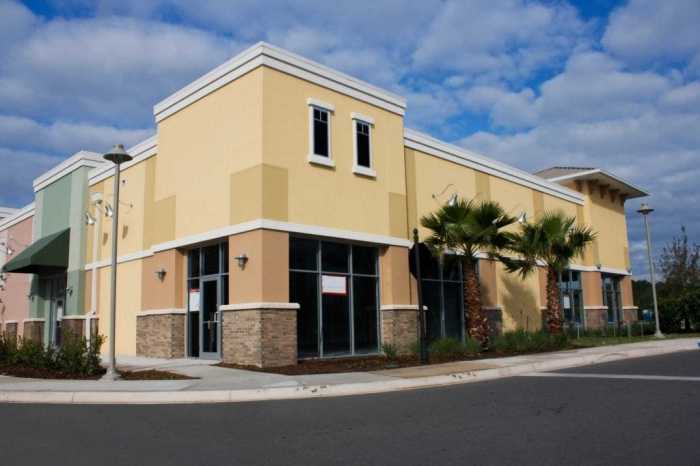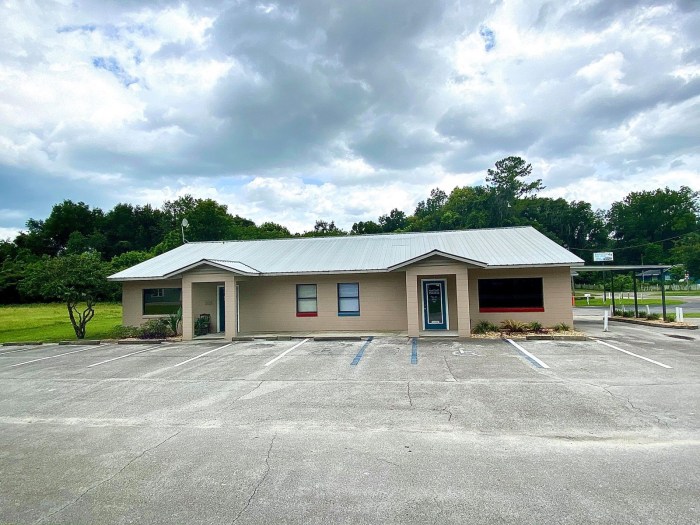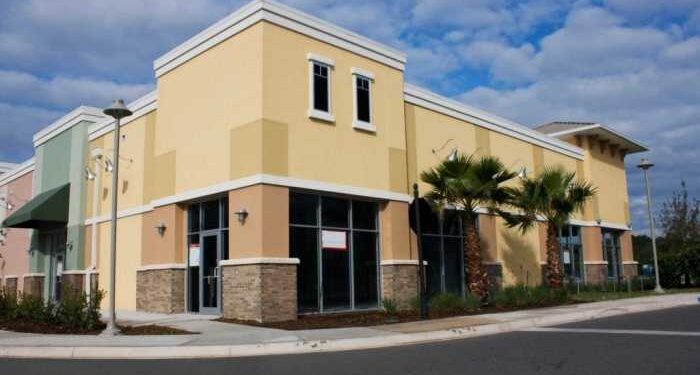Delve into the realm of business property for sale, where the possibilities are endless and the decisions are pivotal. This guide aims to offer insights, comparisons, and considerations to help you navigate the landscape of commercial, industrial, and retail properties with confidence and clarity.
Types of Business Properties

When looking for business properties for sale, it's important to understand the different types available and their unique features. Here, we will compare and contrast commercial, industrial, and retail business properties to help you determine which type suits your needs best.
Commercial Business Properties
Commercial properties are typically used for office spaces, retail stores, and restaurants. These properties are located in commercial areas with high foot traffic, making them ideal for businesses that rely on visibility and accessibility. They often have amenities such as parking spaces, elevators, and common areas for shared use.
Industrial Business Properties
Industrial properties are designed for manufacturing, production, storage, and distribution purposes. These properties are usually located in industrial zones away from residential areas due to noise and pollution concerns. They feature large warehouse spaces, loading docks, and high ceilings to accommodate heavy machinery and equipment.
Retail Business Properties
Retail properties are specifically tailored for businesses that sell products or services directly to consumers. These properties are commonly found in shopping malls, strip malls, or standalone buildings in high-traffic areas. Retail spaces are designed to attract customers with storefronts, display windows, and ample space for showcasing merchandise.
Factors to Consider When Buying Business Property

When looking to purchase business property, there are several key factors that need to be taken into consideration to ensure a successful investment. One of the most crucial aspects is the location of the property, as it can greatly impact the success of the business.
Additionally, zoning laws and regulations play a significant role in determining how the property can be used, which is essential to consider before making a purchase.
Importance of Location
The location of a business property can directly influence its accessibility to customers, visibility, and overall success. A property located in a high-traffic area with easy access to main roads and public transportation is more likely to attract customers and drive sales.
Furthermore, being situated in a commercial area with complementary businesses can create synergies and increase foot traffic. Therefore, it is crucial to carefully evaluate the location and its potential impact on the business operations and profitability.
Zoning Laws and Regulations
Zoning laws and regulations dictate how a property can be used and what type of business activities are permitted on the premises. It is important to understand these regulations before purchasing a business property to ensure that the intended use aligns with the zoning requirements.
Violating zoning laws can result in fines, penalties, or even forced closure of the business. Therefore, conducting thorough research on zoning regulations and obtaining necessary permits and approvals is essential to avoid any legal issues in the future.
Financing Options for Buying Business Property
When it comes to purchasing business property, there are various financing options available to consider. These options can have different requirements, terms, and implications, so it's essential to understand the differences to make an informed decision.
Traditional Bank Loans vs. SBA Loans
Traditional bank loans and Small Business Administration (SBA) loans are two common financing options for buying business property. Here's a comparison of the two:
- Traditional Bank Loans:
- Typically require a higher credit score and down payment than SBA loans.
- May have more stringent eligibility criteria.
- Offer fixed or variable interest rates.
- SBA Loans:
- Backed by the government, offering lower down payments and longer repayment terms.
- May have higher fees and paperwork requirements compared to traditional bank loans.
- Provide more flexibility for businesses that may not qualify for traditional bank loans.
Leasing vs. Buying Business Property
Deciding whether to lease or buy business property is a crucial decision for business owners. Here are the advantages and disadvantages of each option:
- Leasing:
- Advantages:
- Lower upfront costs compared to buying.
- Flexibility to relocate or expand easily.
- No responsibility for property maintenance or repairs.
- Disadvantages:
- No equity buildup as with ownership.
- Potential rent increases or lease restrictions.
- Lack of control over property modifications.
- Advantages:
- Buying:
- Advantages:
- Build equity over time as property value appreciates.
- Control over property modifications and customization.
- Potential for rental income if space is leased out.
- Disadvantages:
- Higher upfront costs including down payment and closing costs.
- Responsibility for property maintenance and repairs.
- Potential for property value depreciation affecting equity.
- Advantages:
Due Diligence Process for Buying Business Property
When purchasing a business property, conducting due diligence is a crucial step to ensure that you are making a sound investment. This process involves thoroughly examining all aspects of the property to assess its value, potential risks, and compliance with regulations.
Role of Inspections and Assessments
Inspections and assessments play a vital role in evaluating a business property for sale. These procedures can uncover hidden issues such as structural damage, environmental hazards, or code violations. By conducting thorough inspections, you can make an informed decision about the condition of the property and any potential repairs or upgrades that may be required.
Importance of Legal Documentation Review
Reviewing legal documentation is another essential part of the due diligence process. This includes examining contracts, leases, zoning regulations, and any other legal documents related to the property. By carefully reviewing these documents, you can identify any potential liabilities, restrictions, or legal issues that may impact your purchase decision.
It is crucial to seek legal advice to ensure that you fully understand the implications of the documents and any legal obligations associated with the property.
Negotiating the Sale of Business Property
When it comes to negotiating the sale price of a business property, there are several key tips to keep in mind to ensure a successful transaction. It is essential to understand common negotiation tactics used in real estate transactions and the importance of conducting thorough market research before entering negotiations for a business property.
Tips for Negotiating the Sale Price
- Set a clear budget and stick to it to avoid overspending during negotiations.
- Be prepared to walk away if the terms are not favorable or the price is too high.
- Consider getting a professional appraisal to determine the fair market value of the property.
- Negotiate based on facts and data rather than emotions to reach a mutually beneficial agreement.
Common Negotiation Tactics in Real Estate Transactions
- Starting with a lower offer to leave room for negotiation.
- Highlighting the property's unique selling points to justify the asking price.
- Being patient and not rushing the negotiation process to avoid making hasty decisions.
- Using a third-party mediator to facilitate communication and reach a compromise.
Importance of Market Research in Negotiations
Market research is crucial before entering negotiations for a business property as it helps you understand the current market trends, comparable property prices, and the property's potential value. This information empowers you to negotiate confidently and effectively, ensuring you get the best deal possible for the business property.
Ultimate Conclusion

In conclusion, the journey through the intricacies of buying business property unveils a tapestry of factors, from location considerations to negotiation strategies. Armed with this knowledge, you're better equipped to make informed decisions in the realm of real estate investments.
FAQ Compilation
What are the key factors to consider when buying business property?
Factors to consider include location, zoning laws, financing options, and due diligence processes.
How do SBA loans differ from traditional bank loans for purchasing business property?
SBA loans are government-backed and typically have lower down payment requirements compared to traditional bank loans.
What is the role of inspections and assessments in evaluating a business property for sale?
Inspections and assessments help identify any potential issues or concerns with the property's condition before finalizing the purchase.
Why is market research important before negotiating the sale of business property?
Market research provides valuable insights into property values and market trends, empowering buyers to negotiate from a position of knowledge.












